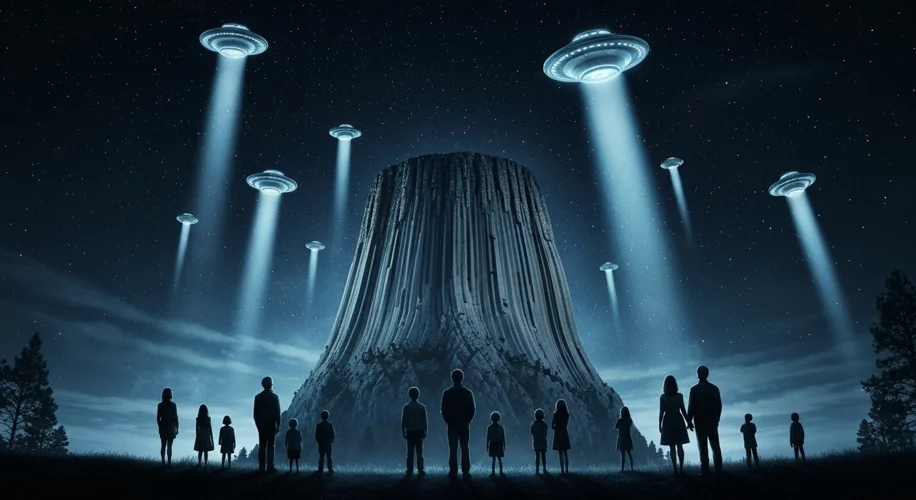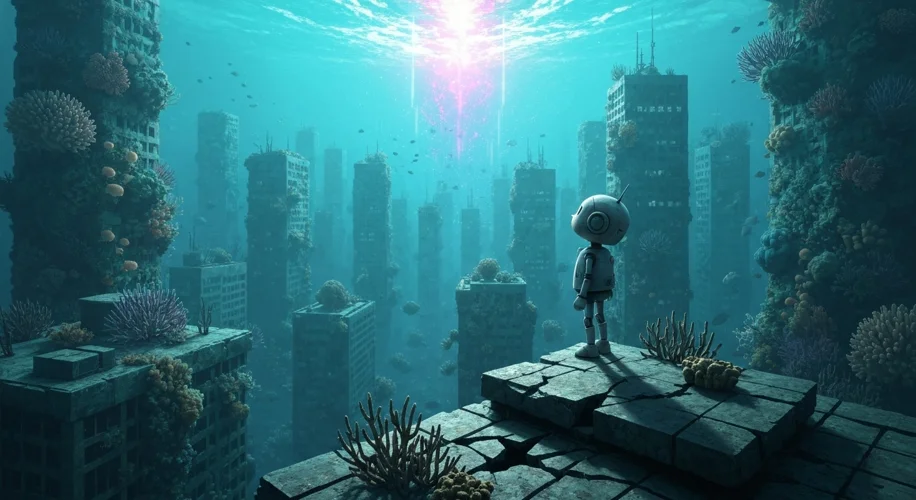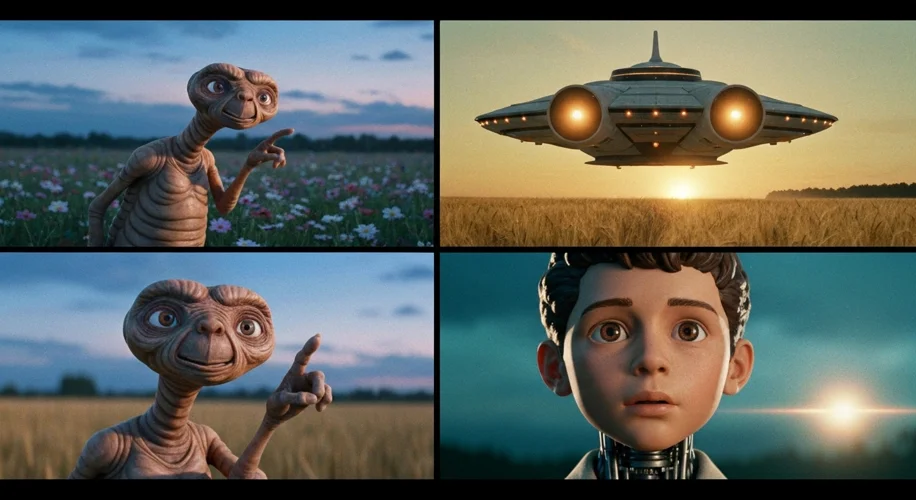In the annals of cinematic history, few names resonate as powerfully within the science fiction genre as Steven Spielberg. From his early days, Spielberg displayed an uncanny ability to weave tales that were not merely spectacles of technological marvels, but profound explorations of the human condition. His films often serve as mirrors, reflecting our hopes, our fears, and our enduring quest for connection in an often bewildering universe.
Spielberg’s journey into the realm of science fiction began with a burgeoning fascination for the unknown. Even before his directorial breakthrough, his short film “Firelight” (1964) hinted at a nascent interest in extraterrestrial encounters. This early spark would ignite into a career that redefined the genre for generations. His 1977 masterpiece, “Close Encounters of the Third Kind,” catapulted him to international fame, presenting aliens not as monstrous invaders, but as beings capable of inspiring awe and wonder. The film’s iconic scenes, like the majestic arrival of the mothership over Devil’s Tower, became indelible images in the cultural lexicon, a testament to Spielberg’s skill in blending breathtaking visuals with heartfelt emotion. It was a world where the alien was not just foreign, but a catalyst for humanity’s own self-discovery.

Following “Close Encounters,” Spielberg continued to push the boundaries of science fiction. “E.T. the Extra-Terrestrial” (1982) became a global phenomenon, a poignant narrative about friendship and belonging, told through the eyes of a lonely boy and his alien visitor. The film’s emotional core, its exploration of childhood innocence, and its universal themes of empathy transcended cultural divides, making E.T. an enduring icon of popular culture. It demonstrated that science fiction could be deeply personal, a vehicle for exploring the very essence of what it means to be human, or even to be alive.
But Spielberg’s contributions were not solely confined to tales of interstellar visitors. He also delved into the complexities of artificial intelligence and the future of humanity. The 2001 film “A.I. Artificial Intelligence,” originally conceived by Stanley Kubrick, fell into Spielberg’s hands, and he brought to it a unique blend of his signature wonder and profound melancholy. The story of David, a robotic boy programmed to love, grappled with existential questions about sentience, identity, and the nature of love itself. Set in a future where global warming has submerged coastal cities and humanity relies on androids for labor, the film presents a world both technologically advanced and deeply scarred. David’s quest to become a ‘real boy’ in a world that cannot truly accept him is a heartbreaking exploration of longing and the very definition of personhood.
The film’s narrative trajectory takes viewers on an emotional odyssey, from the sterile laboratories of Cybertronics to the submerged ruins of ancient cities, and finally to the mythical blue ice caves of the Super-Toys’ final refuge. This visual journey is punctuated by David’s unwavering determination, a powerful embodiment of a created being striving for an innate human quality. The character of Gigolo Joe, a malevolent yet ultimately tragic figure, adds another layer of complexity, highlighting the artificiality of emotions and the inherent dangers of programmed desires. “A.I.” asks uncomfortable questions: What constitutes a soul? Can love be programmed? And what happens when our creations surpass our own capacity for empathy?

Spielberg’s masterful storytelling in “A.I.” lies not just in its visual grandeur, but in its ability to evoke a visceral response from the audience. The film’s melancholic tone, often punctuated by moments of startling beauty and profound sadness, leaves a lasting impact. The final act, with David’s millennia-long wait for reunion, is a poignant meditation on the enduring nature of love and memory, even in the face of ultimate loss. It’s a testament to Spielberg’s vision that he could transform Kubrick’s more detached, philosophical framework into a deeply emotional, almost operatic experience.
Across his science fiction oeuvre, Spielberg consistently explores recurring themes: the outsider seeking acceptance, the yearning for connection, the blurred lines between humanity and the artificial, and the enduring power of hope in the face of overwhelming odds. His films have not only entertained millions but have also shaped our collective imagination about the future, the cosmos, and our place within it. He didn’t just create blockbusters; he crafted cinematic myths that continue to spark wonder and provoke thought, reminding us that even in the most extraordinary circumstances, the simplest human emotions—love, loss, and the desire to belong—remain the most powerful forces of all.

